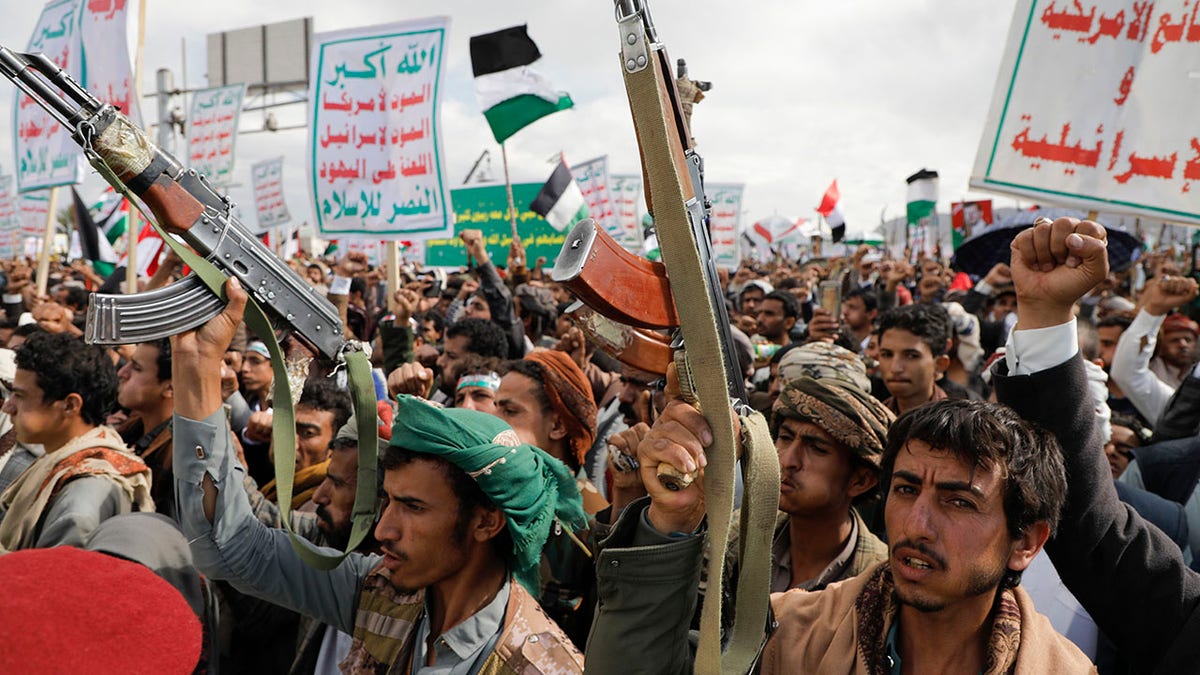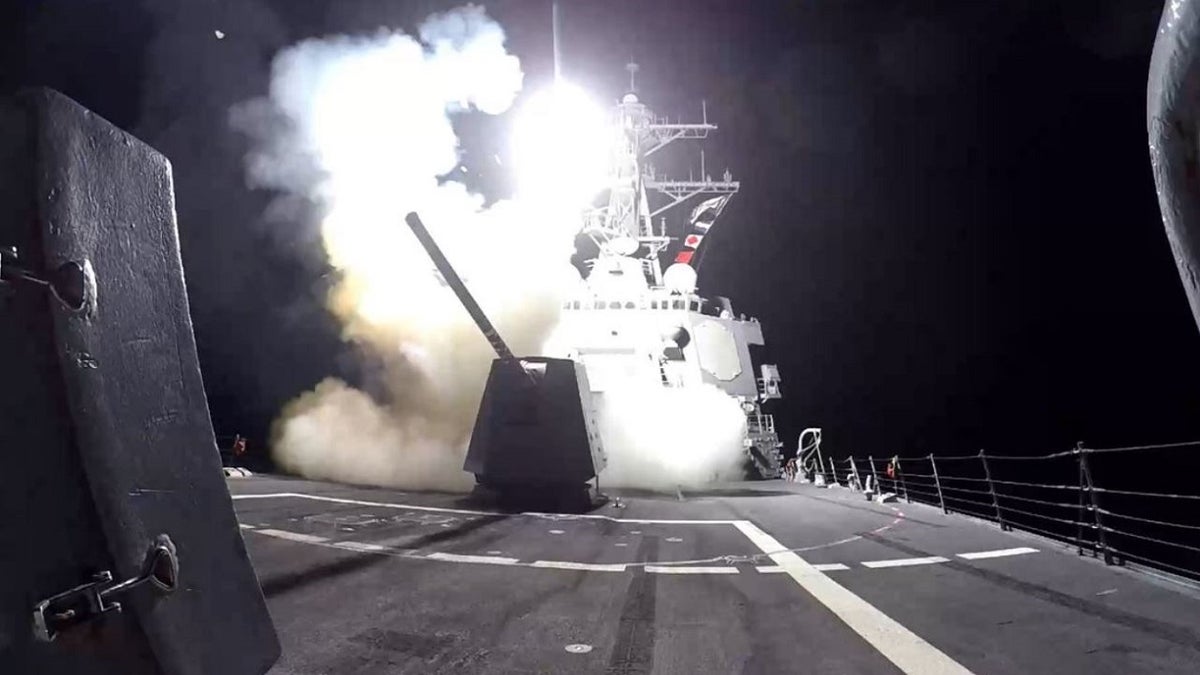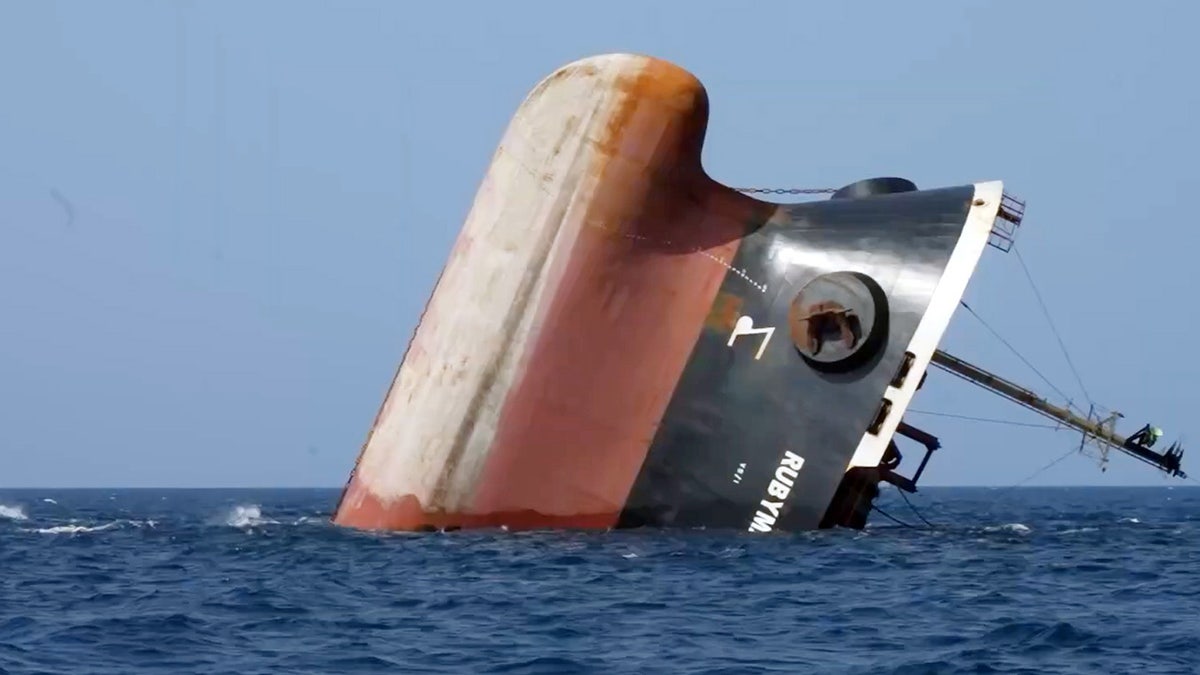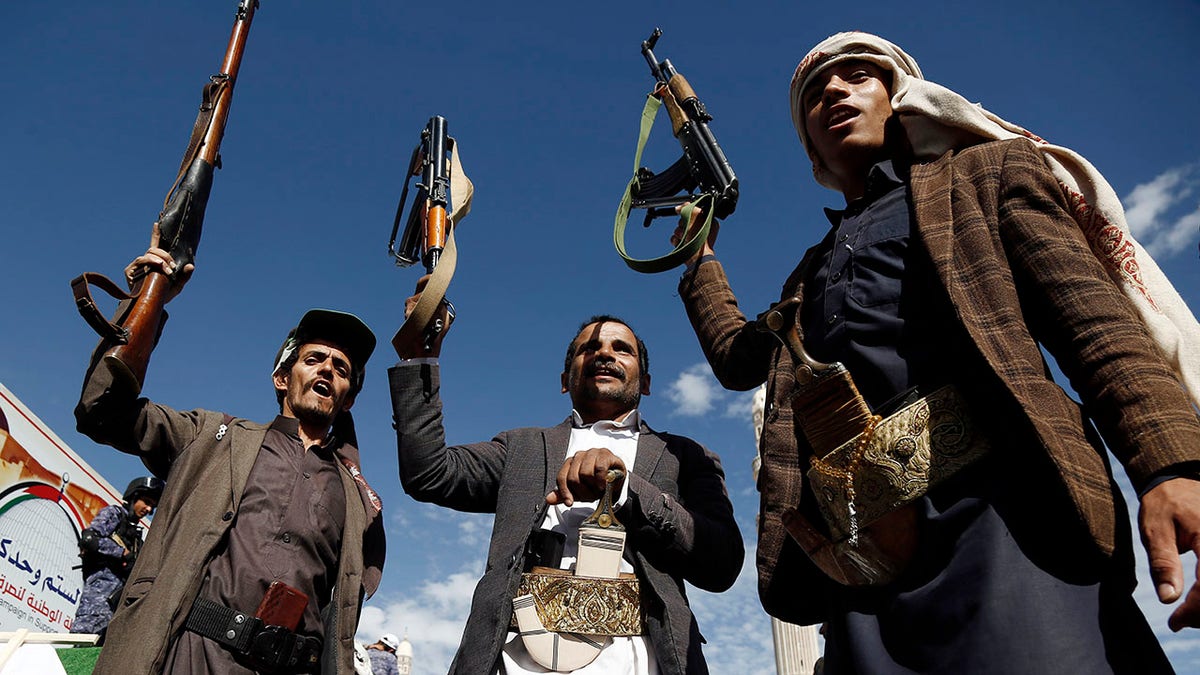US Navy defeats largest single attack from Houthis to date
Fox News chief national security correspondent Jennifer Griffin reports on Iran’s undeterred support to the Houthis despite President Biden’s warnings on ‘Special Report.’
A top U.S. Air Force commander believes Houthi rebels in Yemen may be low on weapon supplies as American and allied strikes on the group have eroded their capabilities.
U.S. Forces Central Command Commander Lt. Gen. Alexus Grynkewich told reporters last week that American retaliatory strikes on the Iran-backed Houthi military group have "certainly affected their behavior" and possibly helped to deplete their weapon supplies, according to a report in the Associated Press.
"The challenge for us is understanding what the denominator was at the beginning. In other words, what did they have on hand to start with? We obviously know how much we have struck and we have assessments of how successful those strikes were," Grynkewich said.
US, COALITION FORCES DEFEAT HOUTHIS' 'LARGE-SCALE ATTACK' IN RED SEA, SHOOT DOWN AT LEAST 28 DRONES

Houthi supporters attend a rally in Sanaa, Yemen, on March 8. (AP/Osamah Abdulrahman)
Grynkewich also cited the group’s "pace of operations" in recent weeks, noting that it "is not what it once was" while cautioning that potential "Iranian resupply" could complicate evaluations of just how low the group is on weapons.
The Iranian-backed Houthis have conducted almost daily attacks on both commercial and military shipping in the Red Seas and Gulf of Aden in recent months, typically using drones and missiles launched from areas in Yemen under rebel control.
Those attacks, which have slowed in recent weeks, have disrupted commercial shipping routes in the region, leading to a U.S. and allied response that has included increased military ship patrols and a wider array of retaliatory strikes on weapons and ammunition facilities. U.S. fighter jets have also bombed Houthi drones and missiles as they were being put in place for launch.
Howerver, Dr. Sumatra Maitra, the director of research and outreach at the conservative American Ideas Institute, cautioned against such an optimistic assessment of the group’s capabilities.
BIDEN TO HAVE US MILITARY BUILD A PORT IN GAZA

A missile is launched from a warship during the U.S.-led coalition operation against Yemen's Houthi rebels in early February. Over the weekend, the U.S. and the United Kingdom conducted joint strikes against the Houthis. (U.S. Central Command)
"I don’t think they are low on weapons, I think that’s a premature opinion," Maitra told Fox News Digital.
Maitra pointed out that the Houthis rely on "a lot of dumb weapons that don’t need targeting," which also includes "low grade drones" that are inexpensive to produce and replenish.
Instead, Maitra pointed to the increased patrols by U.S. and allied militaries as being one of the primary drivers of the recent slowdown in Houthi activity. Another potential reason for the slowed pace could be because of instructions from Tehran, Iran, where the Iranian government is involved in negotiations between the Biden administration, Israel and Hamas in Gaza.
"The Iranians have probably told them – because they are their main suppliers – ‘you need to hold your horses, we are negotiating with these people,’" Maitra said.

The British-registered cargo ship Rubymar sinks after it was targeted by Yemens Houthi forces in international waters in the Red Sea on March 7, 2024. (Al-Joumhouriah channel via Getty Images)
YEMEN'S HOUTHIS HAVE A HYPERSONIC MISSILE, REPORT CLAIMS
The Pentagon did not immediately respond to a Fox News Digital request for comment.
According to the AP report, the U.S. military believes that the Houthis had dozens of anti-ship ballistic missiles when they started their campaign, which the group has defended as an effort to pressure Israel into ending its war in Gaza.
While attacks on U.S. forces by other Iranian-backed militias in countries such as Iraq and Syria have largely decreased since U.S. retaliatory strikes in February, Grynkewich noted that the Houthis are more independent of Iran and might not always be "responsive" to instructions from Tehran.
Maitra echoed a similar sentiment, arguing that the group can "decide on their own" strategy and can be "far more fanatic."
"They have a very different way of looking at global politics," Maitra said.

People lift their rifles and chant slogans while participating in a protest staged in solidarity with Palestinians and Yemens Houthi rebels in Sanaa, Yemen, on March 22. (Mohammed Hamoud/Getty Images)
CLICK HERE TO GET THE FOX NEWS APP
That reality could lead to an uptick in attacks with little warning, with Maitra arguing that the group does not have as big of a stake in the Iranian talks with the White House.
"The Houthis don’t really care about who’s ruling in Iraq or what kind of negotiations Iran and the Biden administration are having," Maitra said. "Their calculation is very different from ours."









































